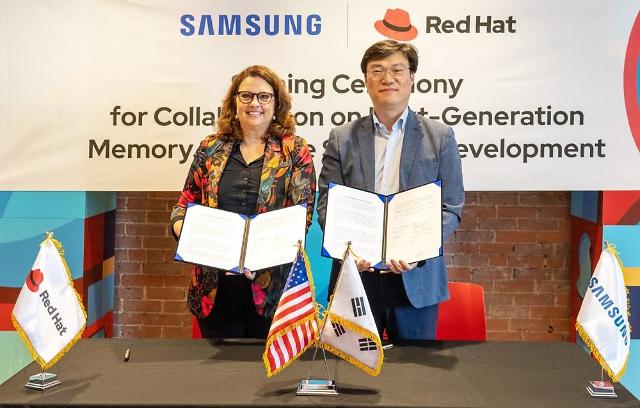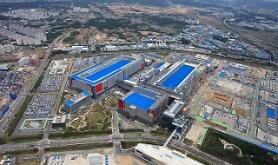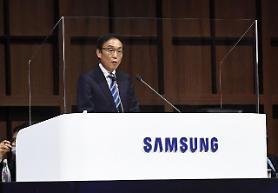
[Courtesy of Samsung Electronics]
Memory software solutions enable multiple memories to be recognized and operated as one or more efficient use of memory performance. The partnership will focus on the development and validation of open source software for existing and emerging memory and storage products in building an expansive ecosystem for closely integrated memory hardware and software.
The partnership with Red Hat came a day after Samsung earmarked some 450 trillion won ($356 billion) that would be invested for five years in future growth engines such as semiconductors, biopharmaceuticals, artificial intelligence and next-generation communication technologies.
The partnership marks the first time that Samsung has joined forces with an open-source software company to foster engagements across the IT marketplace. Samsung said that the exponential growth of data driven by AI, augmented reality and the fast-approaching metaverse is bringing disruptive changes to memory designs, requiring more sophisticated software technologies that better link with the latest hardware advancements.
"Samsung and Red Hat will make a concerted effort to define and standardize memory software solutions that embrace evolving server and memory hardware, while building a more robust memory ecosystem," Samsung's memory application engineering team head Bae Yong-cheol said in a statement on May 25.
Samsung said it would launch a memory research cloud platform to develop and verify software solutions on diverse server environments. The platform will enable customers and partners to evaluate new software products in configuring optimal combinations with memory hardware.
"In the upcoming data-centric era, the integration of memory-centric hardware and software architectures will become increasingly essential, and for this purpose, Red Hat is happy to participate in the joint undertaking with Samsung," Red Hat's Asia Pacific head Marjet Andriesse was quoted as saying.
Copyright ⓒ Aju Press All rights reserved.



